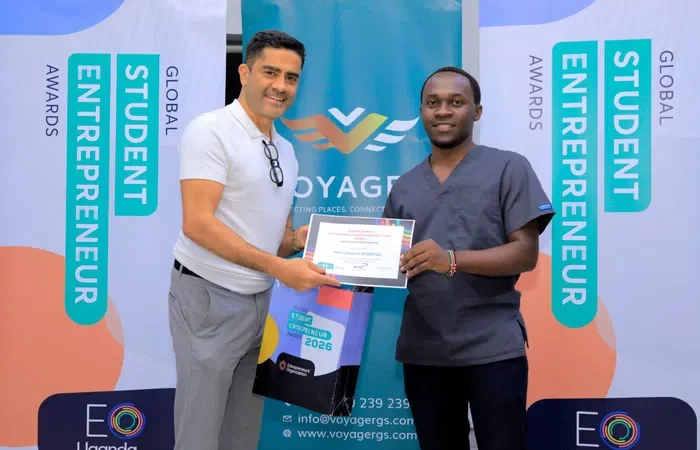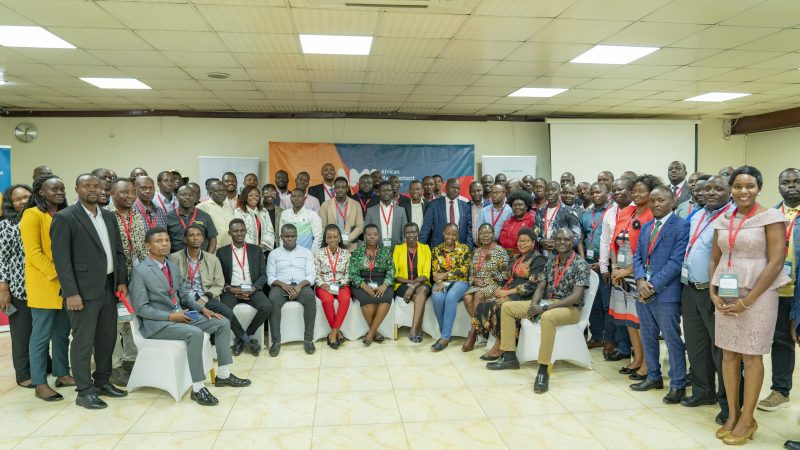By Muwanga Onesmus
1. Procurement policy should favour local manufacturers.
There is a need for government to give priority in purchasing to locally made products or to local manufacturers before thinking of importing the same products. “Imagine we pay taxes but government uses that hardly earned money(Tax) by Ugandans to support foreign companies, by importing foreign furniture, when in Uganda there are people who can manufacture the same furniture /products” then the same government comes back to us to request for taxes so that it can take it abroad when we have people here who can manufacture the same products”. It is absurd to see that we have people here who can manufacturer clothes, furniture, shoes, even tear gas, but government leaves behind these people to import products from abroad which Ugandans have ability to manufacture.
Imagine in ministries, government institutions like URA, BOU and State house they have products from abroad which Ugandans can make, army shoes and police shoes are imported but Ugandans can make similar products. Since government is the biggest spender it should help us, by supporting us in return by procuring locally made products for their institutions instead of importing.
(During Gov’t procuring, different local manufacturers should given chance to supply government institutions, either through the use of a rotation method, or choosing at least the best 3 bidders to avoid money flowing in the same direction or into only one family and as well to reduce the chances of corruption.
2. Government Should provide subsidies to Local manufacturers and suppliers of Locally made product.
Government should provide local manufacturers with subsidies like Loans at lower interest rates, tax holidays, grants and machinery to local Ugandan manufacturers and innovators in order to boost local production.
Suppliers and shops which sell locally made Ugandan products in majority should be given subsidies like tax reduction, low interest loans in order to encourage retailers and whole sellers to appreciate and market Ugandan products in their shops.
To expand the local business, the government should provide banking services to the native people. Moreover, the government could extend its services. It can provide mortgage warehouse lending services and jumbo loans with minimal rates of interest. That said, providing these loans offers an investment solution, and can also help the clients of jumbo mortgage wholesale lenders with a tax break. By focusing on this part of loans, the government can encourage the involvement of local manufacturers in the production of their own products.
3. Protection of local manufacturers and innovators from foreign competition.
No one can venture to manufacture clothes, shoes, Bags, phones, etc…, when they know that government is going to allow the same cheap Chinese products or other foreign products on the Ugandan market at a price of three thousand shillings 3,000shs, 9,000shs when Ugandan manufactured products are at 30,000shs or 60,000shs sixty thousand shillings. This implies that the Ugandan manufactured products will be kicked out of market by the foreign imported products. Leaving Ugandan local manufacturers in debt and unemployed.
It is on this point that we propose that government puts up patriotic protective mechanisms that would give Ugandan manufacturers competitive advantage either by increasing Taxes on imported products that compete with locally manufactured products, or by restricting entry of certain imported products that compete with the locally manufactured.
Otherwise, this is one of the main reasons people are discouraged from entering the manufacturing business, because they is no guarantee of protection from competing imported products. Government can also help manufacturers by subsidizing the advanced equipment based on the needs of a specific industry. Paint, food, and cosmetic industries, for example, work with liquids; therefore, they would benefit from advanced mixers (you can check it out here), conveyor belt assembly, and other equipment. It could help manufacturers increase their quality and the rate of production.
We know such a policy may be painful to some importers but in the long run it can benefit the country.
3. Change of Ugandans’ perspective /attitude towards locally made Products.
One of the biggest obstacles to Ugandan manufactured products is the Ugandans’ inferiority complex about their own products. Ugandans need to be taught that if they don’t buy from Ugandan manufacturing plants, they will have no jobs for their Children, because these local manufacturing plants are the ones that employ their children and if their products are not bought these local companies will close and their children will be left jobless.
Ugandans should be reminded that in the foreign imported goods they purchase non- of their children works there and there is little benefit they get apart from sending their profits abroad.
By supporting local manufacturers that is when their products will improve and meet the level of the imported one’s they admire.
4. Technology Transfer.
In the place of importing finished products from abroad, Uganda can decide to import the knowledge instead. For instance, in the case of metal heat treating and casting process, they can contact companies like Hudapack metal treating Inc. and acquire the necessary knowledge. Additionally, these companies can assist with setting up manufacturing facilities requiring alloys, forged iron, and metals. For bolstering the local manufacturing process, such steps could come in handy for the manufacturers to learn and incorporate those ideas. This is what we call Technology Transfer or Knowledge Transfer.
Along with technology transfer, the government may need to bolster the major industry of the country like like mining, construction, and agriculture. Such sectors usually require advanced and modern machinery to compete with the lucrative deals offered by foreign developers. As local businesses’ old equipment may not be able to compete with the fast-paced development offered by foreign companies. Business owners can collaborate with Grays or similar firms to sell their old and obsolete machines in their portals and purchase advanced machinery.
Government can decide to bring experts to teach Ugandans how to make certain imported products or it can send talented people from Uganda e.g the craftsmen in Katwe can be sent in Japan or china to learn new technology skills to improve their work and when they return they teach others. This is what is done by developed countries in order to reduce imports and boost local manufacturing/industrialization.
5. Education Reform.
Practical Craftsman skills & Innovation courses should be made mandatory right away from primary to secondary.
If government is interested in promoting local manufacturing and innovation, children’s minds should be directed into that direction right away from childhood. Parents and Students should be taught not to treat vocational and creative subjects with contempt but rather as the key to industrialization.
6. Invest in Research & Development;
Government should increase funding in research, innovation and Development. Most industrialized countries put a lot of money in research and development. People and Students who come up with innovative enterprises and ideas should be funded so that they can materialize their ideas. Without new innovations and manufacturing a national economy can’t grow at a high speed.
There is a Research institution in Nakawa that is supposed to support Ugandan local manufacturers and people with good ideas but it seems only a few people know about that institute, it is hidden and not promoted. There is a lot of dormant potential lying in that institute. We should be having many of such Research and Development Institutions in almost every region or district. But only a few people benefit from it, hardly many people know about it. Thus such inefficiency in such institutions is keeping many manufacturers from reaching their full potential.
By increasing research and development we shall be able to invent new products which we can manufacture locally because the brains exist but they have not been tapped and promoted.











